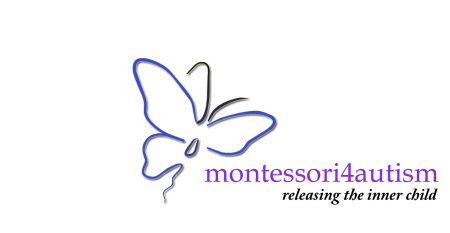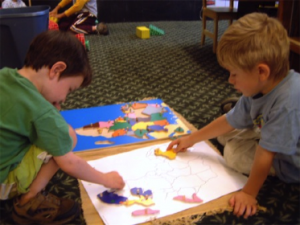Fostering Independence and Choice-Making Ability
Fostering Independence and Choice-Making Ability
The Montessori curriculum fosters independence and choice-making in children with disabilities. Research has shown that children with the severe disabilities make few meaningful choices in their daily lives. In fact, the relationship between disability level and choice making is an inverse one: the more severe a child’s disability, the fewer opportunities he or she typically has to make meaningful choices.¹
In a Montessori classroom, all children, with or without disabilities, may choose any material for which they have had a lesson given by the teacher.
References
1. Guess, David, Benson, H.A., & Siegel-Causey, E. (1985). “Concepts and issues related to choice making and autonomy among persons with severe disabilities”. Journal of the Association for Persons with Severe Handicaps, 10, (2), 79-86.)

